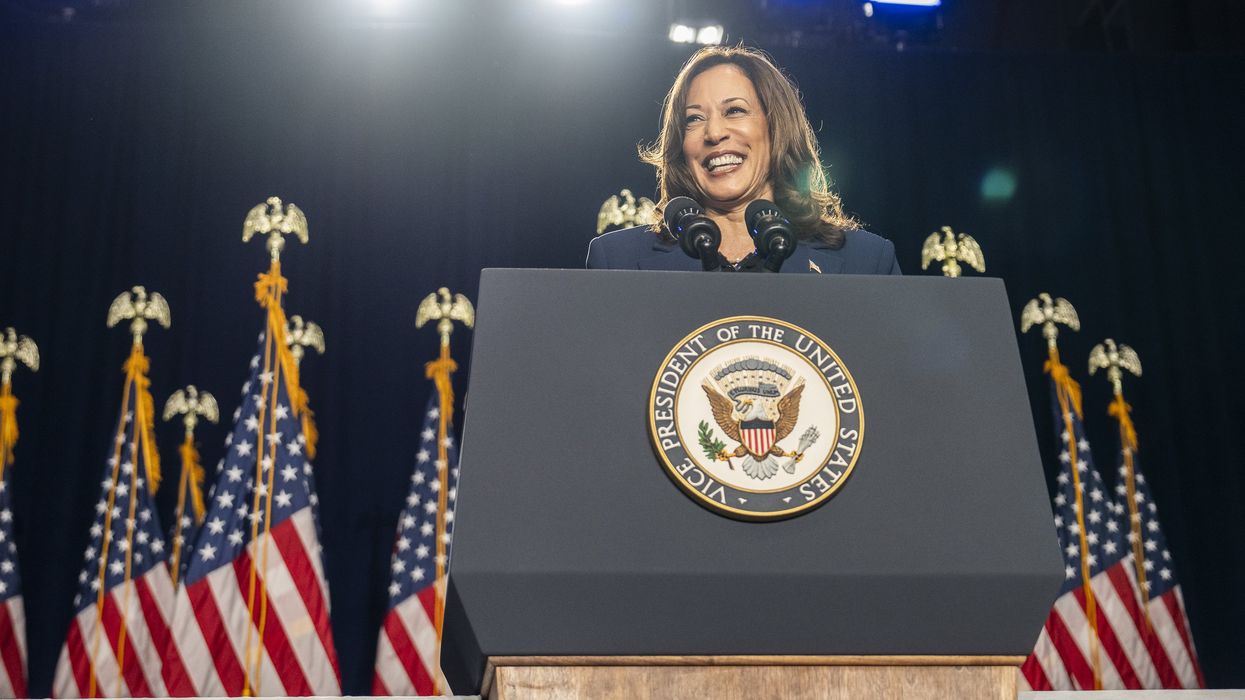Johnson is a United Methodist pastor, the author of "Holding Up Your Corner: Talking About Race in Your Community" and program director for the Bridge Alliance, which houses The Fulcrum.
With President Joe Biden announcing he will not seek re-election, a pivotal question has emerged: Is America on the brink of electing its first woman as president? Or are we destined to be tethered to the gravitational pull of a bygone era, one dominated by the same white patriarchal power structures that have long defined our social and geopolitical identity?
The presidential election is not just another political event, it's a moment that will shape the future of generations yet unborn. And how we answer these questions will serve as a referendum on America's soul.
Can we find it within ourselves to lean into the future and embrace the demographic reality unfolding over the past several decades? Or will we cling to a nostalgic vision of a monochromatic past that's increasingly at odds with the multicultural tapestry of modern America?
We've undoubtedly made strides as a nation. American leadership has been transformed, from Barack Obama's presidency to the record numbers of women and people of color in Congress. We've seen the election of women and uniquely diverse persons across the political spectrum, especially of color, like Rep. Ilhan Omar and Rep. Rashida Tlaib (the first Muslim women in Congress) and Rep. Sharice Davids and Interior Secretary Deb Haaland (the first Native American women in Congress).
Judiciary appointments are more diverse, with the seating of Justice Ketanji Brown Jackson, the first Black woman on the Supreme Court and, formerly, the U.S. Court of Appeals for the District of Columbia, as an example. Yet the presidency remains a barrier unbroken by a woman. What does this say about our steadfast commitment to equality?
The 19th century white patriarchal fantasies that have long shaped our national identity are losing their relevance, and it's this waning influence that's given rise to the toxic brew of racism and sexism threatening to undermine democratic and social progress. But even as such reactionary forces try to turn back the clock, there's reason for hope. The demographic shifts giving rise to this backlash also propel us toward a more inclusive future, a future that promises progress and inclusivity. Our current voting population, younger and more diverse than any previous generation, demands a government that looks like them. They're organizing, mobilizing and engaging in ever-increasing numbers, potentially signaling the want for a uniquely different future.
America stands at a crossroads, and the path to progress and inclusivity is within our reach.
This country can continue down the path of division and recalcitrance, letting the fears of a shrinking but vocal minority who resist the changing demographics and the shift towards a more inclusive future dictate our course. Or we can choose to embrace the future, to lean into its divine uniqueness, which has always been America's greatest asset and identity. As citizens, it's our duty to elect leaders who embody the best of who we are and aspire to be.
Ultimately, electing a woman of color as president won't just be about shattering a glass ceiling. It would affirm a principle truth: that in America, everyone, regardless of their race, gender or creed, ought to have equal opportunity. Such an accomplishment recognizes that the wisdom, experience and perspective women and uniquely diverse persons bring are invaluable to building a more just and equitable society.
The world is watching. The future awaits. History will remember the choices we make in this moment. Will Americans find the courage to seize this historic moment? Will the fears of the past and our lesser angels dictate our future? Or will this aspirational nation find the strength to embrace the opportunity before us? Each of us, as citizens, has a responsibility in this defining moment. Our collective actions, our votes and our voices will determine the future of our nation. We are not just spectators, we are the architects of our future.




















 From left to right: Gabriel Cardona-Fox, Bud Branch, Joe Concienne
From left to right: Gabriel Cardona-Fox, Bud Branch, Joe Concienne 